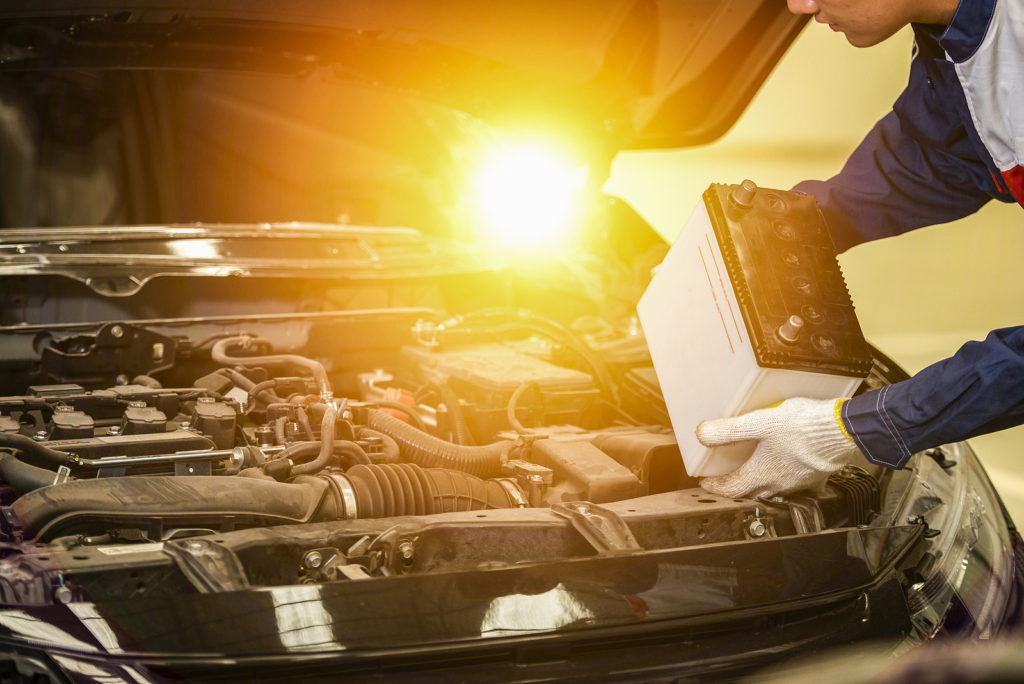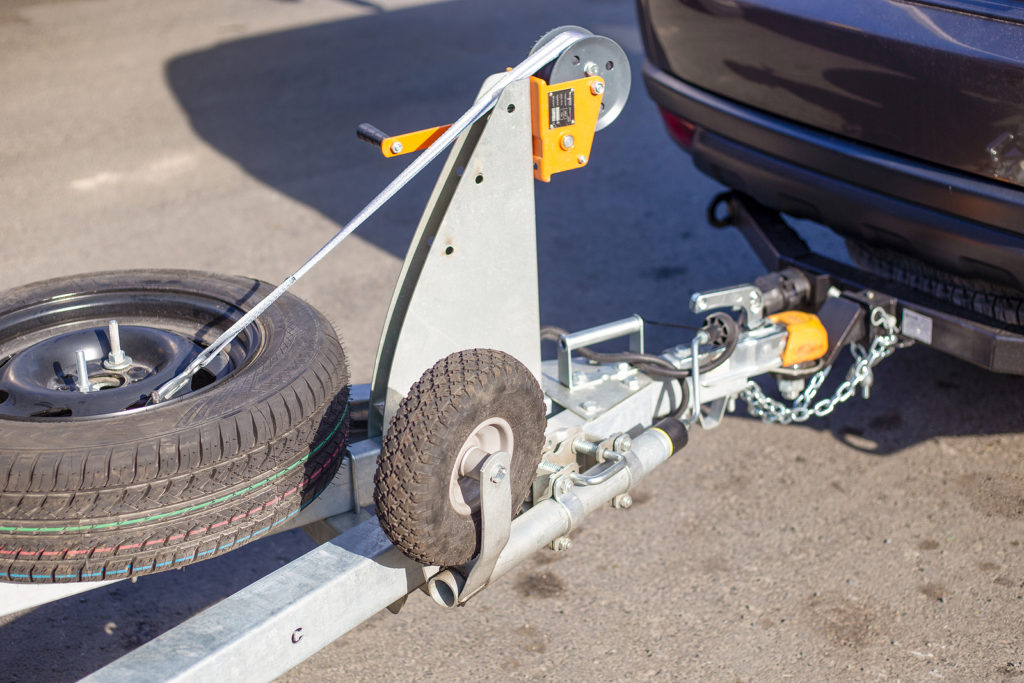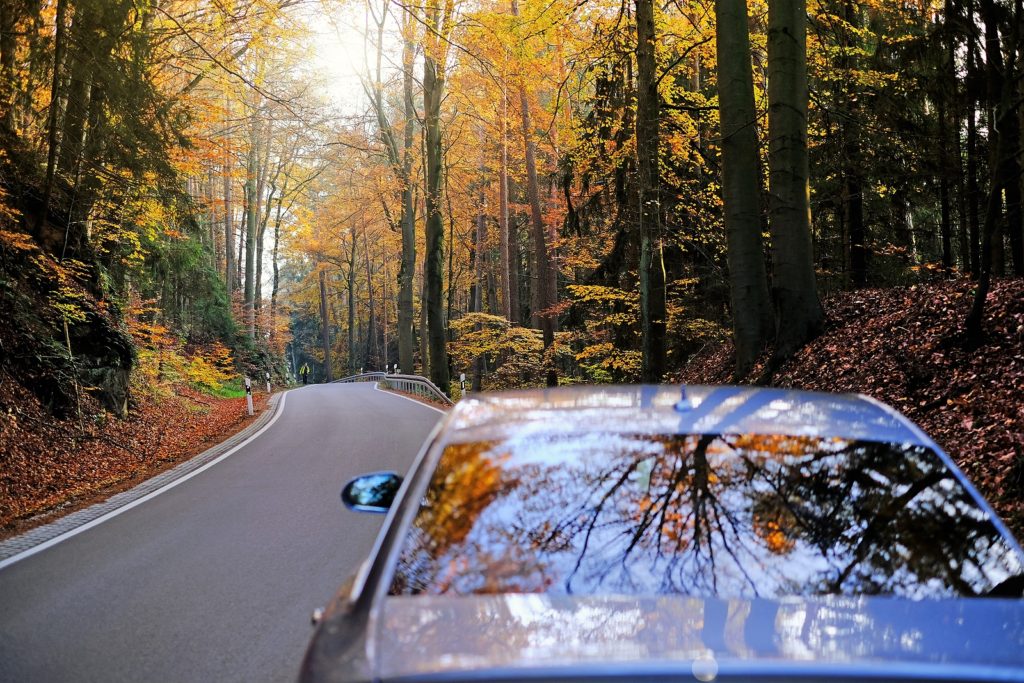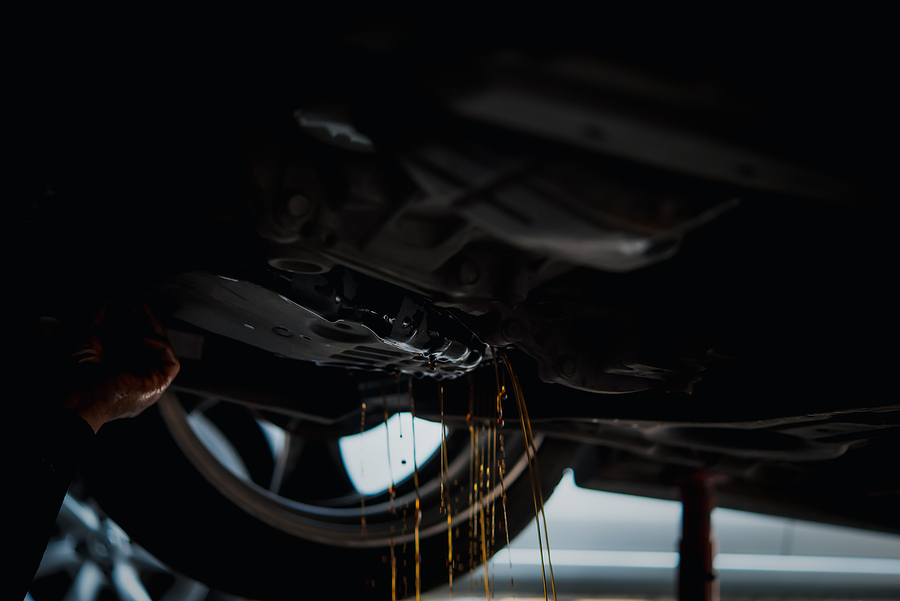For anyone who operates a vehicle, road safety should be at the top of the priority list. But being “road safe” doesn’t stop at safe driving; it also requires being prepared for emergencies, whether that’s a flat tire, stalled engine, dead battery, or something more catastrophic. Fortunately, you can better prepare yourself for unanticipated road emergencies by keep certain items in your vehicle at all times.
Continue reading to learn at least 6 items that can help you during your next road emergency.
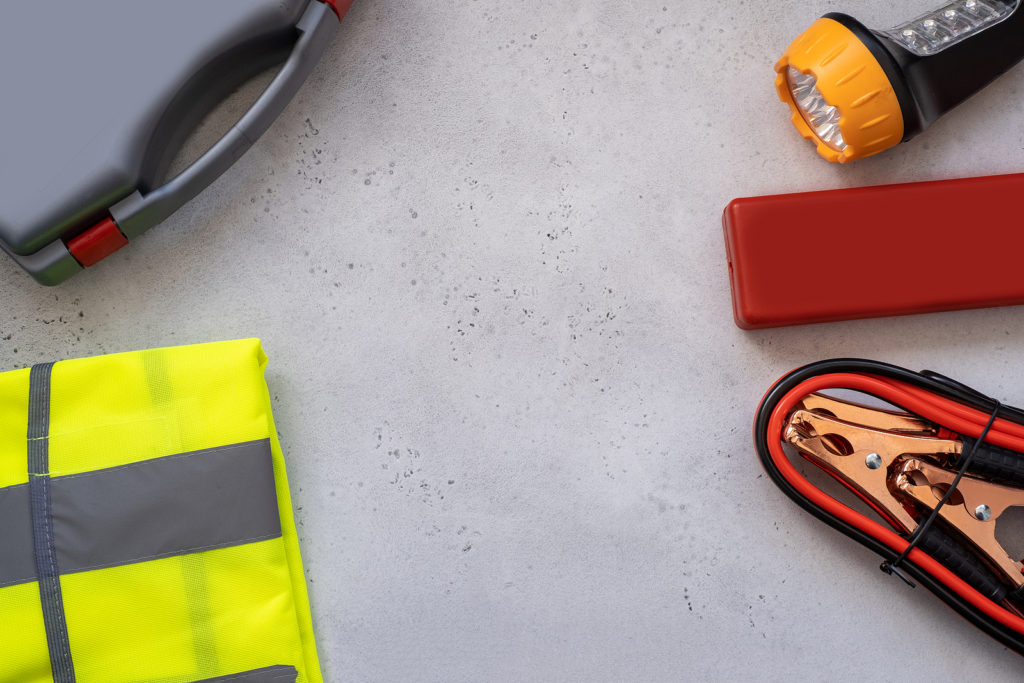
Jumper Cables
If your car battery dies, your jumper cables will save you from a major setback or costly tow. Always keep workable jumper cables in the trunk of your vehicle. Never remove them. Today, many jumper cables can be purchased in a nicely-compacted package that won’t take up too much space in your trunk. Be sure you also know how to jump start a dead car battery.
Spare Tire and Tools
In the case that you get a flat, it is quite possible to change your tire yourself, that is, if you have a spare one on hand. Most cars come with a factory spare, but if you bought your car used, it might be missing. Be sure to check your car for a spare, and if you do not have one, buy one that matches your make and model vehicle. Spare tires are available for sale at any local tire store or automotive parts store.
Flashlight or Lamp
If your car breaks down at night, especially if it’s due to a dead battery, it might be too dark to see what you are doing. Not only does this hinder your ability to identify and resolve the issue, but it can also put you and your passengers in danger of being hit by other vehicles. Avoid these problems by keeping a quality flashlight or lantern in your car, along with an extra set of batteries.
Blanket
In the case that your car breaks down in the middle of a cold season, and your heat does not work, you would be safer and more comfortable with a blanket. If you commonly have passengers with you, add more blankets.
Water
Just like blankets, water is another prime roadside emergency item to have. Keep a gallon jug or a 6-pack of bottled water in your trunk in the case that your engine overheats, or you are broken down for a long period of time without food or beverage.
Fully-Charged Portable Phone Charger
There are several portable phone chargers on the market to choose from. Be sure the one you add to your roadside emergency kit is a good quality brand. Be sure it is fully-charged, and then keep it in your vehicle at all times. Only use it for emergencies. You see, if your car breaks down because of a dead battery, you won’t be able to use your car to plug in your phone. A portable charger solves this common problem.
Indianapolis Indiana Roadside Assistance and Towing Services
Call Zore’s Towing at 317-247-8484 for 24 hour roadside assistance and towing services in Indianapolis and throughout Central Indiana. Our friendly staff is waiting by the phones, ready to help you get back on the road, safe and sound. We operate 24 hours a day, 7 days a week, and 365 days a year, so you can always count on us. Request a free estimate, today.


